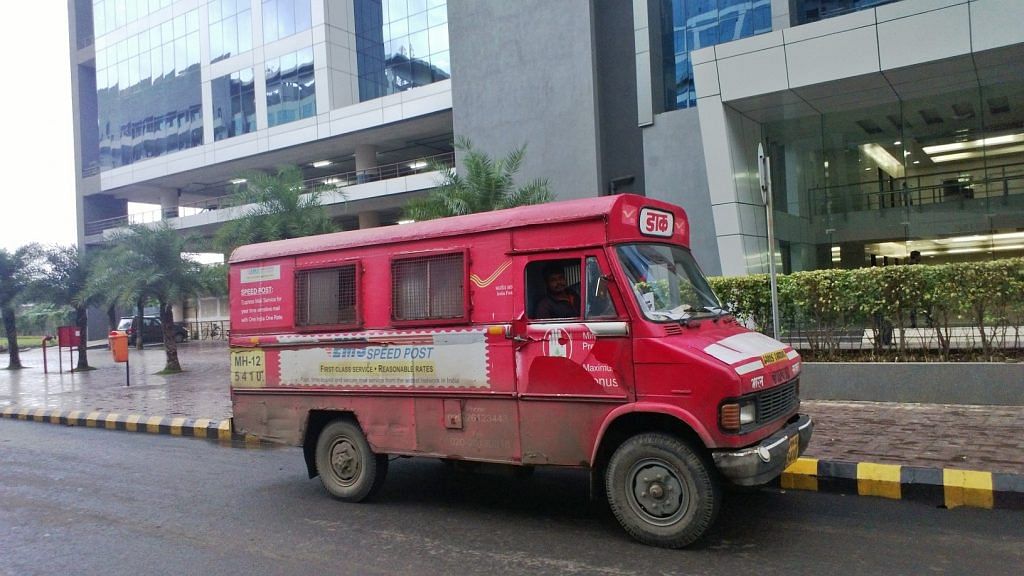UPSC chairman Arvind Saxena, former RAW chief Vikram Sood and noted South Asia expert Tilak Devasher all once served in the Indian Postal Service.
New Delhi: The recent appointment of Arvind Saxena as the chairman of the Union Public Service Commission (UPSC) has brought the focus back on a relatively little-known branch of the country’s bureaucracy — the Indian Postal Service (IPoS).
Saxena, who took charge Thursday, is the first former IPoS officer to be appointed as the UPSC chairman. Another officer from the cadre, IMG Khan, is a member of the UPSC.
While it is a relatively low-profile department, several IPoS officers occupy important positions in the central government ministries.
The service has also produced bureaucrats such as former R&AW chief Vikram Sood, and former special secretary, cabinet secretariat, Tilak Devasher, apart from Saxena.
The three of them, however, have not served in the IPoS for too long.
Sood, who authored The Unending Game: A Former R&AW Chief’s Insights into Espionage, was permanently absorbed into the R&AW cadre and served there for 31 years.
Devashar, a South Asia expert and author of Pakistan: At the Helm, had also served a long tenure in cabinet secretariat before retiring in October 2014. Formerly, an officer from the IPoS, he had resigned from the service before working in cabinet secretariat.
Saxena too served in R&AW for twenty-seven years, since he joined the agency in 1988.
An old service
The IPoS is one of the oldest Group ‘A’ Central Civil Services, where officers are selected through the prestigious civil services examination conducted by the UPSC.
IPoS officers are tasked with looking after the overall administration of the postal division where they are posted. This includes management of postal services and operations, looking after post offices and mail offices, expansion of the postal network, public grievance redressal and personnel management.
Once considered a crucial service, when post offices played a significant role in the country’s affairs, the IPoS has fallen down the pecking order in Indian bureaucracy.
But while its role may have been diminished, the service has been reinventing itself, beating back predictions that it would become redundant, with the death of traditional mail.
“Till the 1970s, it was considered a crucial service and the backbone of India’s communication network with its network spread in every nook and corner of the country,” a senior IPoS officer told ThePrint. “The service was influential for mobilising small savings of the government and also government funds to states for developmental work.”
The officer added that with the advent of unregulated courier services, banks and the internet in the late 80s and early 90s, the service went through a ‘dark’ period.
“Many of these challenges still remain because of the delay in decision making and implementation of suggestions recommended by various internal committees in tackling these challenges,” the official said.
The officer added that while it is still considered one of the most trusted networks in the country, there continues to be a deficit in the expenditure, incurred especially in human resources and other technologies, and the revenue earned by the department.
Also read: New UPSC chief Arvind Saxena among the few non-IAS officers heading recruiting body
How Speed Post may have saved the service
ThePrint spoke to many other officials across services about the IPoS, with most of them validating the importance of the service today, especially after the various revamping measures taken by the government.
A senior official from another service said that when the courier services, which were faster and efficient, began gaining popularity, many thought the IPoS would die out.
“But then they introduced the Speed Post (in 1986), which competed with these companies because the postal service network was more spread out and was considered more reliable,” the official said, adding that the IPoS was also one of the first to start the process of outsourcing and engaging business development associates.
In the 2000s, the IPoS came up with strategic plan report to revamp the postal service.
Acting on the report, the department has renovated post offices into multiproduct centres, modernised the existing postal network, begun operating as payments bank, and also ensured the makeover of India Post, the government-operated postal system.
The report, the officer from another service said, also pointed out that the value and potential, of India Post’s extensive network, was being underestimated and noted that it provided extraordinary opportunities for last-mile delivery, which the service worked on, the official said.
He, however, added that many challenges remain because of the slow death of traditional mail.
Also read: The IAS has thinned at the top of the bureaucracy under the Modi government
Department where officers flourish
These days, the IPoS is among the least preferred options for candidates appearing for the civil services exams and has few takers. Even then, there is a degree of exclusivity — just a handful of candidates, rarely over 12 or 13, are chosen for the department.
This is because of the way the service, which is part of the department of posts under the Ministry of Communications and Information Technology, is structured.
There are 23 postal circles in the country, each circle headed by a chief postmaster general. The circles are further divided into regions, headed by a postmaster general and comprise field units called divisions. These are further divided into subdivisions. There is also another base circle for postal services to the Armed Forces of India.
“The service is also unique in the sense that the department of post is always headed by someone from the IPoS and not by any other service. Hence the officers also flourish,” the official said, adding that the transformation of the “neglected” service is an example of many other services.
